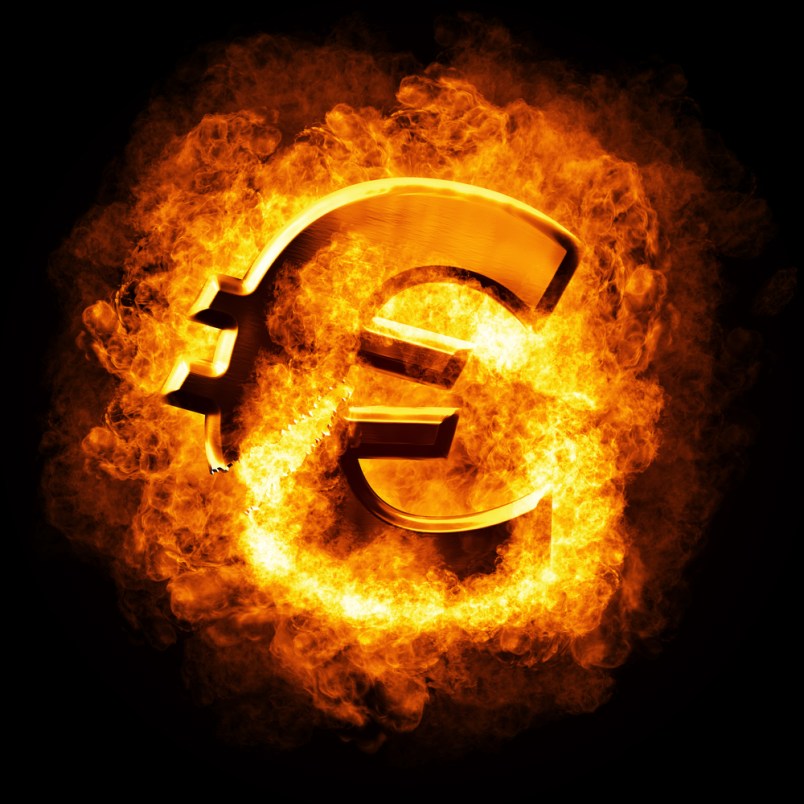In a carefully worded statement Thursday, President Obama applauded the news out of Europe.
“We welcome the important decisions made last night by the European Union which lay a critical foundation for a comprehensive solution to the Eurozone crisis,” Obama said. “We look forward to the full development and rapid implementation of their plan. We will continue to support the EU and our European allies in their efforts to address this crisis as we work together to sustain the global recovery and put our people back to work.”
If you’re a U.S. political news junkie you probably missed this. And now that you’re reading it here, you may be wondering why the President of the U.S. is commenting at all about something called the “Eurozone crisis.”
The short version is this: A number of countries on the Euro are heavily indebted. But because they’re part of a monetary union, they can’t meliorate their problems on their own by manipulating their currency, and they risk toppling other, healthier economies, destroying the Euro and potentially plunging the world into another recession. That includes the U.S. That’s why President Obama cares. And his re-election bid probably makes him all the more concerned.
With good reason.
For months now, Eurozone countries have figured out how to add hours, minutes, and seconds to the Euro time bomb, but they haven’t figured out how to defuse it.
They went through similar motions this week, though there’s some optimism that European leaders have at least laid the groundwork for averting catastrophe.
On Thursday, after tense negotiations, banks that own Greek debt agreed to take a 50 percent loss on the value of those holdings. Dozens of exposed banks will also be forced to raise $150 billion in capital to protect themselves against losses on loans to Greece and other struggling countries. Eurozone countries agreed in principle to quadruple the size of the European bailout fund (officially, the European Financial Stability Fund) to $1.4 trillion, but they have no plan in place to do so.
So there are a lot of unanswered questions. But leaders did take a few of the steps (or pledged to take steps) prescribed by UC Berkeley economist Barry Eichengreen, who foresaw a crisis along these lines years ago.
Markets were initially enthused by the developments but quickly returned to earth as these questions and doubts surfaced. And in his statement Obama made clear that this is just groundwork — we’re still awaiting the follow through.
The good news for the U.S. is that GDP grew at a modest, but real 2.5 percent last quarter, so we’re not as close to a recession as some had feared. But if the Euro collapses, the U.S. is likely quite exposed, and everything changes.










